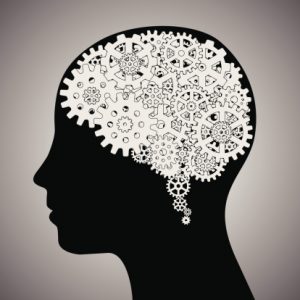Intelligence
 Intelligence is the ability to learn, process, comprehend, and store information gathered from the environment. The term is an elusive one, as philosophers and scientists have debated the concept of intelligence for hundreds of years, and it has proven difficult to limit the idea of intelligence to one collectively agreed-upon definition.
Intelligence is the ability to learn, process, comprehend, and store information gathered from the environment. The term is an elusive one, as philosophers and scientists have debated the concept of intelligence for hundreds of years, and it has proven difficult to limit the idea of intelligence to one collectively agreed-upon definition.
However, psychologists have only recently generally agreed that in order to understand intelligence and what it does, a person’s ability to adapt to the surrounding environment must be considered. Adaptation, put simply, means changing one’s self to fit one’s surroundings or finding new surroundings, if necessary. This action involves several cognitive processes, showing that intelligence is a collection of many abilities, rather than any single ability.
Common Definitions of Intelligence
Several tests exist to measure intelligence, the most common and popular of which is the IQ test. IQ tests were originally developed to test for mental retardation, but eventually they began to be used to measure children’s intellectual development in comparison to other members of their age cohort. Modern tests now test for “G,” a factor of general intelligence that incorporates cultural knowledge, basic skills, and facts that supposedly do not depend upon education. However, many people have criticized this test as culturally biased, since IQ test scores tend to go up with education and training and because factors such as poor nutrition can negatively impact test performance. Another flaw is that the IQ test does not measure things like social intelligence, the skill of interacting with others.
Howard Gardner’s proposed theory of multiple intelligences, however, incorporates spatial, verbal, and artistic intelligences, as well as other forms of intelligence and competence. While many psychologists have welcomed Gardner’s theories as offering a more comprehensive understanding of intelligence, others still claim that intelligence is not an innate factor and that skills in each area of intelligence improve with training. It is also important to note that viewing intelligence as something that can change and increase over time, rather than something that is fixed or immutable, positively affects academic achievement, especially for those who belong to groups that are negatively stereotyped as being less intelligent.
Debates About Intelligence
Subjective assessments of a person’s intelligence can strongly affect that person’s life. When a teacher believes that a student is intelligent, for example, that student is likely to get more attention in the classroom. Similarly, employees perceived as smart may receive better opportunities and more promotions. The negative side of this generally occurs when a teacher views a student as less intelligent than their peers and pays less attention to that student. This makes it more likely that the student will fail to develop intellectually. Thus, many experts have advised extreme caution in both defining and measuring intelligence.Common subjects for debate include:
- How to define intelligence.
- Whether intelligence can be scientifically measured at all.
- Whether intelligence is a result of genetics and very early experience or is highly flexible and subject to training.
- Whether intelligence is a product of training and education or a result of an individual’s processing speed, memory, and other factors.
- Whether personal characteristics such as curiosity affect intelligence.
- Whether there are differences in intelligence between ethnic groups and the sexes.
Fluid vs. Crystallized Intelligence
One popular theory of intelligence, developed by psychologists Raymond Cattell and John Horn, suggests that overall intelligence is comprised of varying abilities that can be categorized as either fluid or crystallized. Fluid intelligence is the ability to reason, think abstractly, and solve novel problems. It is considered to be more of an innate ability, one that is independent of a person’s learning or experience. Situations that involve fluid intelligence include solving puzzles and recognizing patterns.
Crystallized intelligence, on the other hand, is the application of knowledge from past learning and experience. Reading comprehension, vocabulary, and the recall of trivia or specific information all require crystallized intelligence. While fluid intelligence peaks in adulthood and then declines, crystallized intelligence continues to increase throughout the lifespan as an individual accumulates new knowledge.
References:
- American Psychological Association. (2009). APA concise dictionary of psychology. Washington, DC: American Psychological Association.
- Cherry, K. (2016, June 21). Fluid intelligence vs. crystallized intelligence. Retrieved from https://www.verywell.com/fluid-intelligence-vs-crystallized-intelligence-2795004
- Intelligence. (n.d.). Retrieved from http://apa.org/topics/intelligence/index.aspx
- Sternberg, R. (2015, May 7). Human intelligence. In Encyclopedia Britannica. Retrieved from http://www.britannica.com/EBchecked/topic/289766/human-intelligence
Last Updated: 01-12-2017
- 2 comments
- Leave a Comment
Emmanuel
January 5th, 2024 at 3:35 PM1,Enviroment 2, self esteem, nutrition & activity are the key. Please let me know if there are other important factors.
Emmanuel
January 5th, 2024 at 3:41 PMdrugs are not supposed to be applied systematically, there are other ways…
Leave a Comment
By commenting you acknowledge acceptance of GoodTherapy.org's Terms and Conditions of Use.



